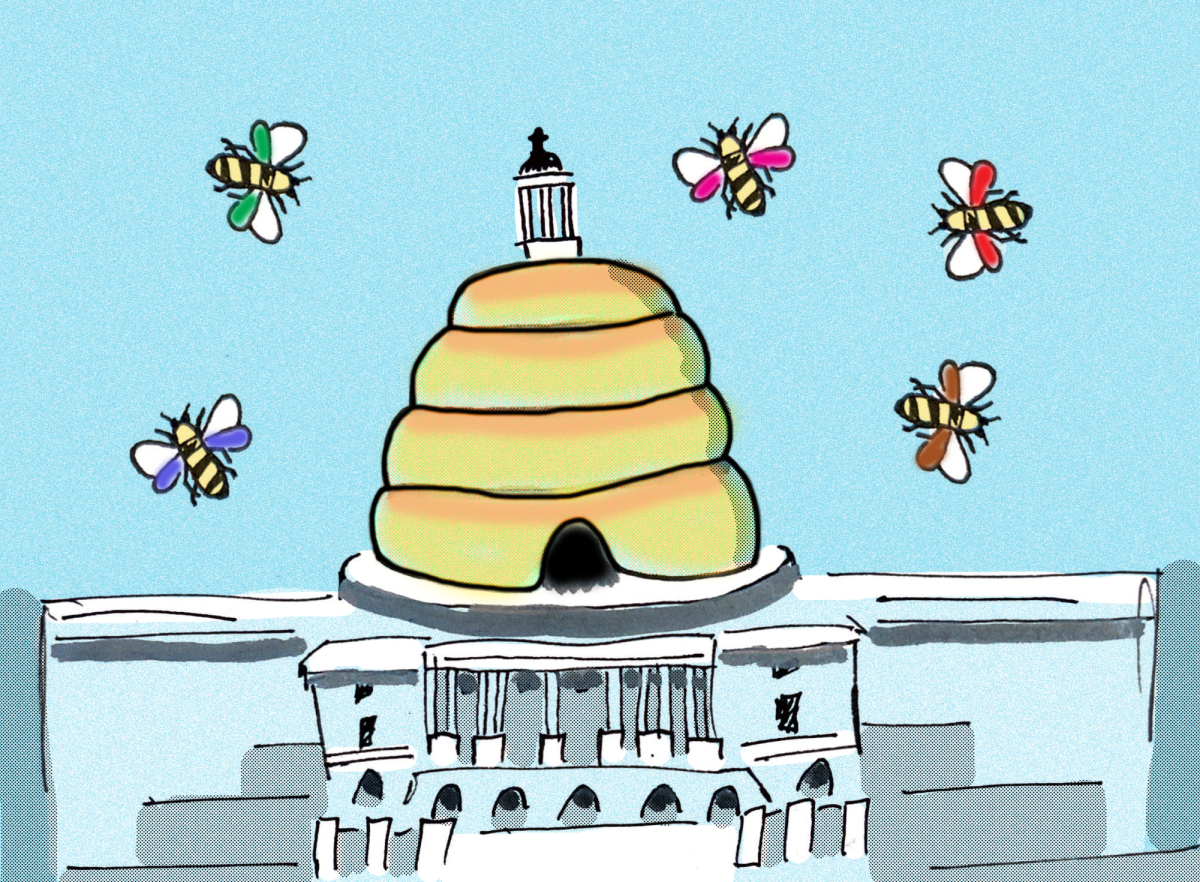Utah is shifting towards a more diverse population.
The most interesting shift is the decrease in LDS members across the state.
As of 2023, Utah’s population is only 42% LDS, which is a significant difference from 2020’s metric boasting a 60% LDS population.
This decrease stems from three main causes: migrating populations from California, secularization and decreasing fertility rates.
As Utah’s population begins to reflect a new community shying away from LDS ideals and belief systems, one should expect Utah’s representatives to follow.
As of 2021, about 9 of every 10 legislators are LDS. Out of the 103 Utah legislators, 89 of them are LDS.
If the U.S. government is to be built upon proper representation, Utahns must support a shift towards less LDS involvement in government. This allows for further avenues of equal representation in government.
A History of Church Intertwined with State
Utah was built upon the bonds of church and state. From 1846 to the 1860s, early LDS members fled from religious persecution from their early colonies.
After a grueling 1,300-mile trek with pregnant women and handcarts, LDS populations were relieved when they found “the place” for their refuge in Utah.
Quickly after arriving, Brigham Young organized the development of Utah as a place for statehood. He believed that if the LDS church acquired state recognition and government, they would be protected from further prosecution.
By 1850, Young was both the leader of the LDS church and territory governor of Utah.
A large controversy sprung from his leadership, as he pushed for protections over polygamy and plural marriage.
Although he was eventually replaced after intense pressure from Congress, the lasting legacy of LDS involvement in politics is ever-present.
The intertwining of church and state is terrifying and directly against a key American belief, the Establishment Clause.
Although Utah doesn’t have a formally established religion, the mere fact that 9 of every 10 Utah representatives are LDS proves that Utah might as well be an established “LDS state”.
Contemporary LDS Legislation and Representation
Over the years, the LDS church has received high criticisms of homophobic, transphobic, sexist and racist attitudes that have caused many members to leave.
The LDS church publicly supports the LGBTQ+ community, as long as they refrain from the “sin” of “same gender attractions.” It also continues to propose solutions to remedy its questionable racist past.
While the positions taken by LDS officials are half-steps in the right direction, what is said by LDS officials and practiced by its members are contradictory.
With state leadership leaning heavily toward conservative ideals, the legislation they pass will only follow these trends.
HB77, one of Utah’s most controversial bills from the 2025 Legislative session, bans Juneteenth, Pride and cultural flags from being flown in government buildings and schools.
Another bill, HB252, prohibits the Utah Department of Corrections facilities from performing certain surgical and hormone treatments for transgender inmates.
LDS members are the most heavily Republican-leaning religious body as of 2021.
Utahns who don’t share the same political ideologies as most LDS members or find HB77 and HB252 destructive or unnecessary must vote for change in their representatives.
Even those who do align politically and ideologically with Utah’s Republican base should push for women in legislative positions.
As of 2024, 81% of Republican state legislators are men.
Conservative and Republican women offer fresh perspectives, as they come from cross-pressured backgrounds.
Unique to Republican women, these politicians face different types of pressure as they must navigate the Republican party’s policies alongside voter pressures and expectations regarding women’s policy expertise.
These perspectives must be valued and put into practice in Utah legislation.
New Practices and Pluralism
A shift from confusing possible church-based state policy to pluralist government in Utah is a must.
Diverse ideology and representation are necessary for proper function, as they allow for new perspectives representative of the actual population.
Rather than the nuanced understanding of diversity, think of it as inclusive to not only ethnic minorities but also the LGBTQ+ community and veterans. Diversity also includes groups like trade unions, professional organizations, women and religious groups.
One of the ways Utah can practice diversified politics is through practices like ethnic quotas, where governments are required to hold certain metrics of ethnic minorities in office.
This is a widely used system across the globe.
Researchers studying ethnic quotas in South Asian governments found that ethnic quotas in government do help diversify.
While the study found that diversified representation didn’t directly lead to socioeconomic benefits for minority groups in South Asia, ethnic quotas improved descriptive and key social indicators for targeted ethnic groups.
Even in India, using a gender quota has proven to help push for legislation that helps women.
After implementing a policy requiring at least a third of elected officials for local villages, legislators passed laws providing economic rights and protections for women.
About 138 countries practice gender quotas. Another 35 countries have begun issuing ethnic quotas. It’s time for the United States to follow, and Utah should pioneer this shift.
For Utah, By Utah
If Utah were to enact quotas limiting LDS influence in politics, opportunities for further diversified politics would follow.
Implementing quotas for ethnic, gender, sexuality and class minorities in legislation supports pluralist government practice, which is an essential element of American politics.
Utah is known as the beehive state, symbolizing the hard work and cooperation required to succeed as a community.
Just as bees work tirelessly to support their hive, Utahns must act similarly.
Through active participation in government, fighting for pluralist politics and policy based upon the people’s values, Utah can trailblaze a new way forward in American government.
Just as the LDS pioneers were unafraid to fight for their freedom of religion and representation in government, Utahns today can reinforce the qualities that made Utah the strong community it once was.




B • Apr 4, 2025 at 7:37 pm
Another anti LDS church article from the Chronicle. Shocker. No change in 40+ years.